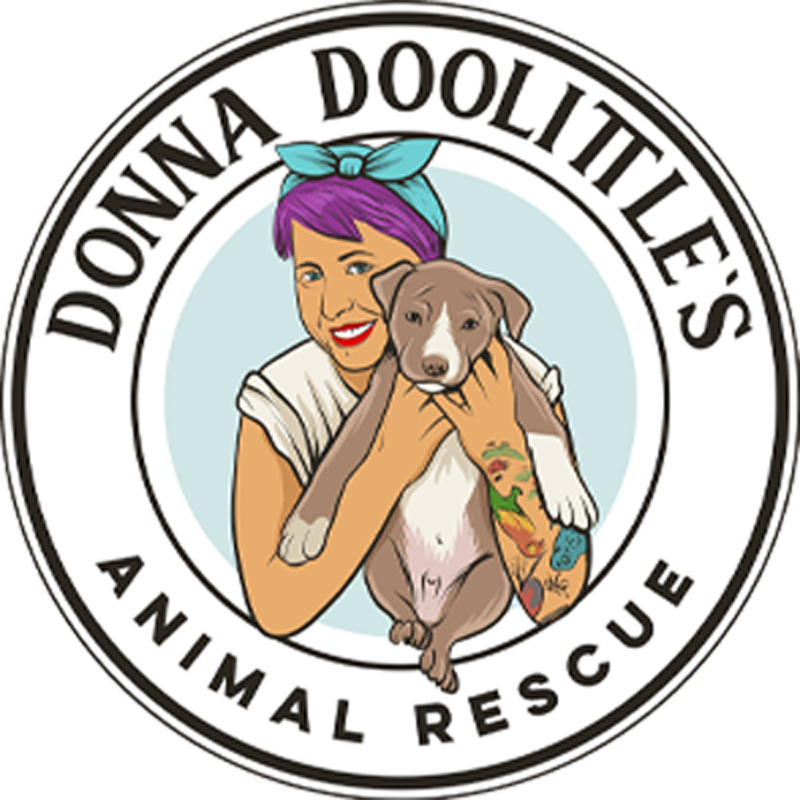FAQs
Is Donna Doolittle’s Animal Rescue a registered charity?
Yes, we are, our charity # is CC56260 all information can be found at Charities Services
Where is Donna Doolittle’s Located?
Donna Doolittle’s is in the Far North Kaitaia, we do not have a shelter location you can visit as all our animals are in independent foster homes.
Are there transport options available to get an adopted animal to a new home?
Yes, although at the owner’s expense we have several options we can offer. Transportation to Auckland Airport, Flights with Air New Zealand & Great Barrier and A4dibble pet transportation via bus.
Are Donna Doolittle’s Team members volunteers?
Yes, everyone involved in Donna Doolittle’s Animal Rescue are volunteers, and yes that includes Donna. None of us get paid for our volunteer work. All volunteers dedicate what time they have in between their daily commitments of family and work.
Can Donna Doolittle’s help with emergency or general medical veterinary cost?
As we are a non-profit charity that does not get any government funding, we are unable to pay for veterinary costs unless prior approval is granted under extreme circumstances. For help with financial hardship for veterinary costs please contact your local SPCA for assistance.
I cannot afford to desex, vaccinate, flea, worm or microchip my dog or cat, can Donna Doolittle’s help?
Help we can offer is all dependant on what funding we have available. We always have a solution, but in the first instance please contact your local SPCA for assistance, as they often will have vouchers to grant. (Dependant on location).
When can I desex my dog or cat?
There are several deciphering factors to answer this question. It is all dependant on your vet’s protocols. We believe that each animal should be assessed individually, and an informed decision made. Please contact your local vet clinic for advice. All animals in the Doolittle’s are adopted from 8-10weeks of age and will be desexed at this age before they leave the rescue.
Can I surrender my dog or cat to the Doolittle’s?
The Doolittle’s is an animal rescue, and we need to keep our limited number of fosterers available for rescue situations. On special circumstances we maybe able to help but please get in contact with our admin team for advice on how to find a home Contact Us.
I have found a stray animal, who do I contact?
For stray Dogs please contact your local animal control
For stray cats there unfortunately is no independent organisation that assists with this issue, unless they are endangering native wildlife. In this instance, please contact your local regional council.
For a stray/owned injured dog or cat, please contact your local SPCA within working hours. Out of hours please contact your local vet clinic to be transferred to an afterhours vet as they have a professional and legal obligation to see an injured or seriously sick animal and relieve it of pain and discomfort.
If it is an immediate emergency please call police on 111.
I have stray cats around my property can you come and get them?
We do not deal with stray cats if they are feral. We have loan traps you can use to capture them, but it is important that you have a plan in place for when you trap a cat and what you intend on doing with the cat once trapped. Please do not trap a cat then contact the Doolittle’s asking them to collect as we cannot assist with this unless prior approval has been given. Speak to your local vet clinic, SPCA or Regional Council for advice.
How often do you worm a dog or cat?
Worming from 2 weeks of age, and every 2 weeks up until 12 weeks, then 3 monthly after this. Note: Please speak to your local vet clinic to discuss the right product for your animal as the above regime may differ in some products
How often shall I give my dog or cat flea treatment?
Depending on the product used, they should be flea treated monthly, although there are many products available that are 5 weekly, 3 monthly, 6 monthly and yearly. Please discuss with your local vet clinic what treatment is best for your pet.
Can I give my dog bones?
There are pros and cons for feeding dog bones and this should always be an informed decision. Under NO circumstances should cooked bones be given. Cooked bones can cause serious medical and costly complications i.e. GI perforation, constipation or death.
Should I give my puppy or kitten cow’s milk?
No, puppies and kittens are born lactose intolerant, feeding milk can give them GI upset, causing diarrhoea and vomiting.
Will you temporarily house and look after my dog or cat as I must go away?
No, we are not a boarding facility, please contact your local kennel or cattery.
Can I feed my dog human food?
Some human food is safe for dogs and cats, but many are toxic and can cause devastating consequences. Please do your research.
Do you train puppies and dogs?
No, but please contact us for referrals or google search local training options

